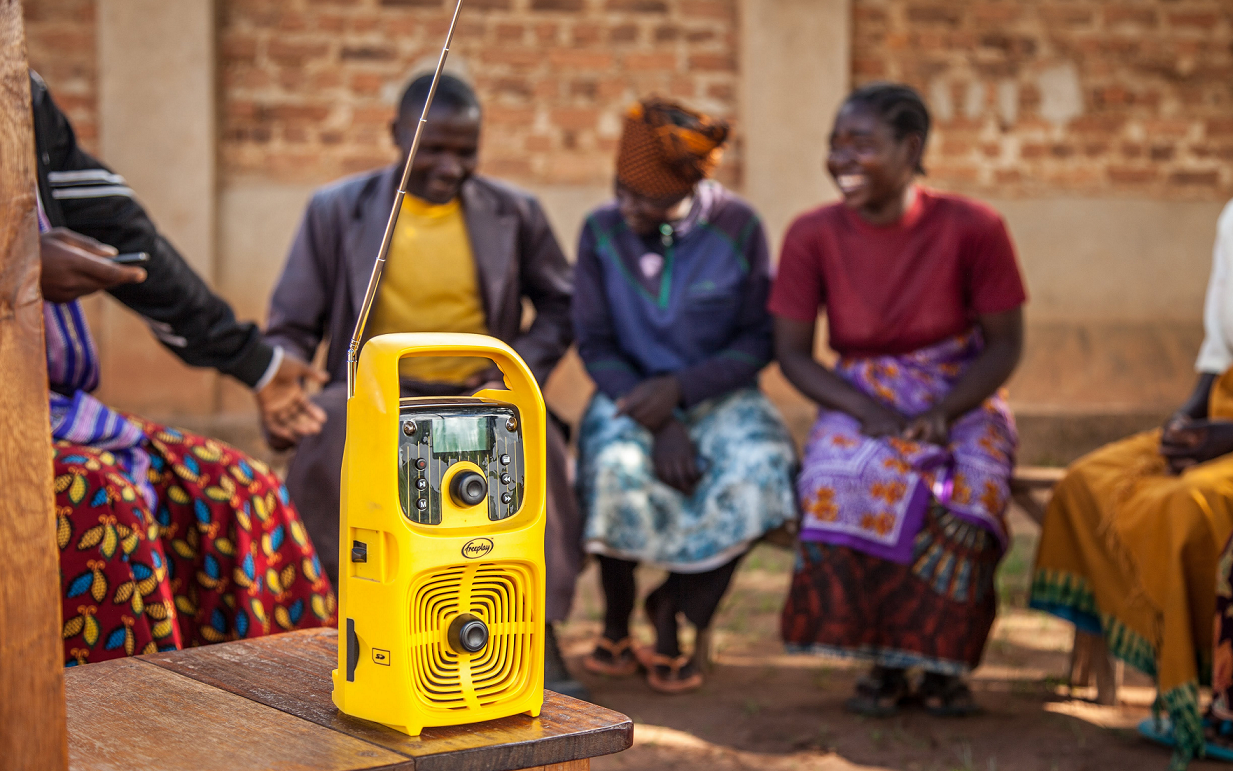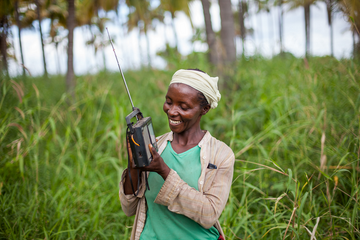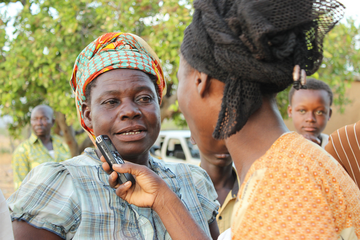Newsletter
Don't miss a thing!
We regularly provide you with the most important news, articles, topics, projects and ideas for One World – No Hunger.
Newsletter
Don't miss a thing!
We regularly provide you with the most important news, articles, topics, projects and ideas for One World – No Hunger.
Please also refer to our data protection declaration.
The global virus pandemic has forced us to find new ways. But tried-and-tested methods are catching on: The radio has proven to be a reliable method of communication in Africa for decades. Mark Leclair from our partner Farm Radio International certainly wouldn't back a different horse...

Mr Leclair, digitisation is advancing around the world, including in rural Africa. Are you not worried that by relying on radio, you are backing the wrong horse in the long run?
In rural Africa, there is only one horse in the race, at least for the foreseeable future. Because there are no comparable offers for the rural population. The electricity supply is unreliable, television and internet are unaffordable. And the COVID-19 pandemic is showing us how precarious it can be to transfer knowledge face-to-face… Even though the network supply for mobile phones is increasing, the classic radio is the clear winner in terms of information, communication and advisory services in rural Africa.
The radio has also proven to be extremely adaptable. In an age of digitisation, the supply and the demand of digital audio offers such as streaming and podcasts have increased.
Another comparable benefit: The audience can listen to the radio while doing other activities - such as farming or doing household chores.

In Nigeria, you are successfully collaborating with the Green Innovation Centre. What have we achieved together?
With interactive radio, we can substantially increase knowledge about sustainable farming practices and business knowledge among approx. 60,000 small-scale farmers in Plateau State – on topics such as soil preparation, spreading fertilisers, pest control, marketing and COVID-19. Out of a potential audience of 600,000 adults, around 280,000 farmers have listened to a third of a total of 50 episodes. Surveys show: Knowledge among the audience is growing considerably. The interactive radio shows are the perfect addition to training from the Green Innovation Centres: Farmers who have already completed these training courses have found it easier to implement the recommended measures. But the radio shows have reduced the knowledge gap between them and the rest of the community.
How do you interact with your audience?
We use traditional methods, for example we start up local audience groups. We also want to involve our audience in the organisation of our shows and are thoroughly researching our target groups for this. But the increase in mobile phones in rural areas is the game changer when it comes to interacting with the audience. One of our most successful interactions is asking the audience to tell us their experiences by phone. This allows us to answer questions and give further advice.
In Nigeria, more than 19,000 interactions from almost 5,000 different numbers were registered and advisors answered 700 questions asked by farmers. Over 40 local audience groups with a total of 742 members actively took part in the radio show with meetings and telephone calls.

Even though corona has cut off many communication methods, we can still rely on the radio. This is why our partnership is being expanded into seven additional countries: Côte d'Ivoire, Ethiopia, Malawi, Mali, Mozambique, Togo and Zambia. What is planned?
The pandemic has highlighted the unique aspects of the radio - comparatively inexpensive, available almost everywhere and it is a quick and easy way to access information. We will now work together with dozens of radio stations in order to start interactive shows for the rural areas in these countries. This means we will be networking radio stations with consulting experts, with agricultural organisations and with each other. This will give hundreds of thousands of men, women and young farmers access to high-quality information about agriculture and health - both during and after the pandemic.